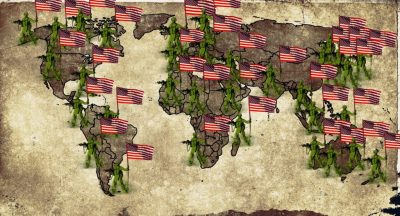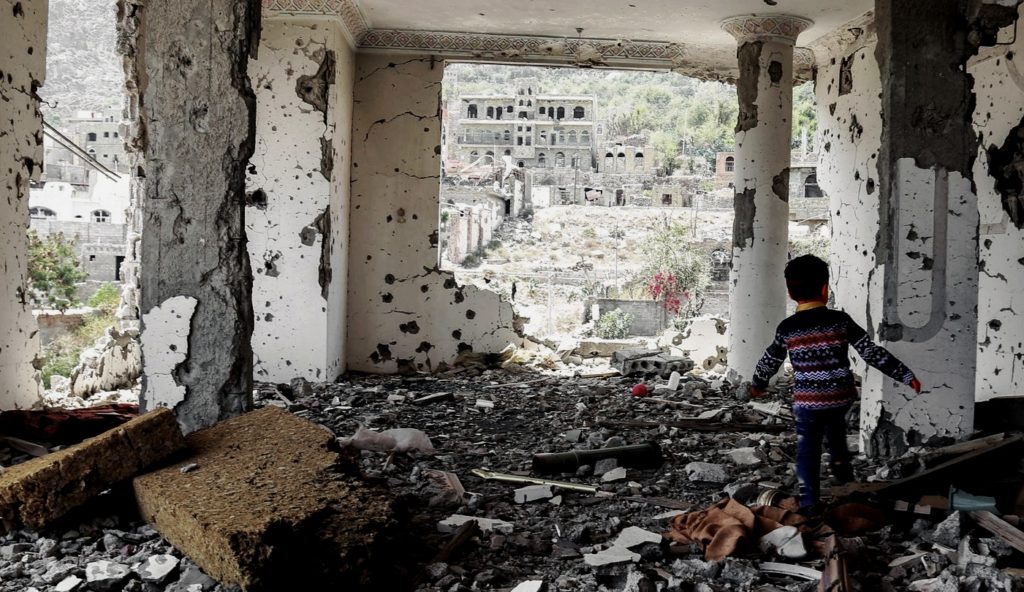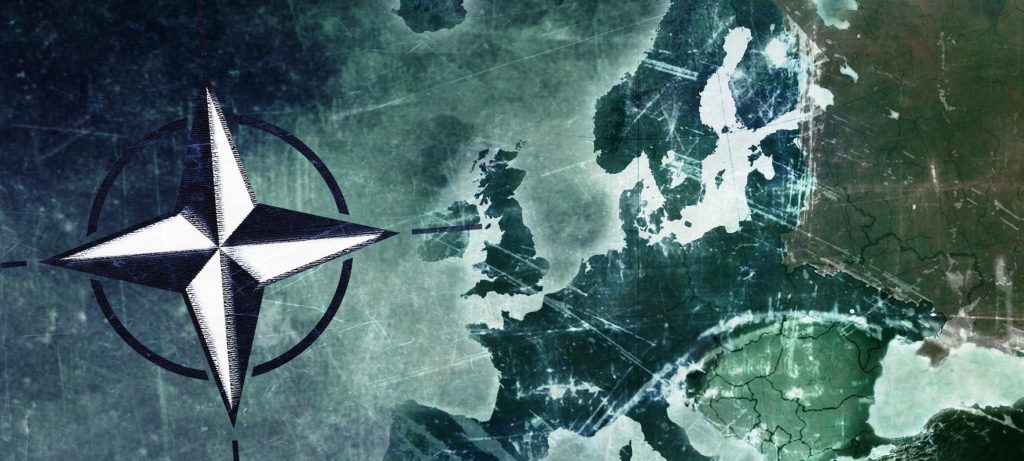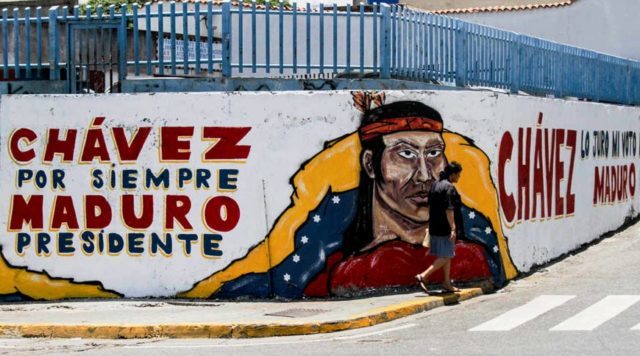Oceania, Eurasia and Eastasia Merger: Global Empire of Dystopia?

The nature of reality in times of universal confusion
The world and our interpretation of it are often at best an idea and, at worse, a figment of our imagination.
In our full-blown Orwellian construct, the truths of some are the fake news of others.
Invisible forces and undisclosed interests rule the world and its so-called leaders, who are mostly actor-puppets directed from scripted narratives. They largely live in an alternate universe where, if you repeat outlandish lies often and loudly enough, the disinformation becomes the unquestionable reality for countless people.
Reality has become stranger than fiction because the conflicting narratives about what is supposed to be real are, by and large, fictional. They are cleverly crafted propaganda that manipulate by maximizing confusion. The masters of this craft have gutted familiar words of all meaning.
Image on the right is from Wackystuff

For example, at the heart of Orwell’s Oceania, the white-orange clown emperor, obsessed with walls to protect his subjects from southern brown invaders, told his adoring patrons and sycophants, “we renew our resolve that Oceania shall never be socialist!”
The aging patricians gathered for the obligatory annual feast gave him a standing ovation, and loudly chanted “Oceania, Oceania, Oceania!…” This enthusiastic chanting from Oceania’s Patricians, except for the more dignified Supreme Elders and Commanders of the Praetorian Guard, repeated itself on cue at least four of five times, to celebrate the great universal superiority of the invincible mighty empire of the free and the brave! The egotistical emperor’s writers must have laughed as he served up their outstanding fictions to the empire’s docile subjects!
Schopenhauer’s relevant pessimism
In his essential book, The World as Will and Idea, the German philosopher Arthur Schopenhauer (1788-1860) contested the rationalist notion that reason alone gave humans the universal key to an infinitely complex, and often irrational, reality. He took the assessments Immanuel Kant had made in his Critique of Pure Reason a step further by adding the fundamental notion of sufficient reason. This was a less absolute concept of the relation of cause to effect, which he anchored in what he deemed to be four categories of human knowledge: science, morality, logic, and metaphysics. Schopenhauer’s work was in part a reaction to the overly optimistic vision of the rationalists, with Rene Descartes in the lead.
In his inherent pessimism, Schopenhauer turned out to be more realistic about the limitations of humans to grasp, not only the full elusive scope of reality, but also their own frailty and insignificance as a self. In these gloomy times of uncertainty and of a general dumbing-down effect in our impoverished global culture, Schopenhauer’s work helps to explain why most aspects of our existence, including our relationship with nature, are beyond most people’s comprehension. For most humans, the absolute reality is an extremely fragmented knowledge filtered through the prism of their perceptions.
Global empire of dystopia?
Image below is from Jakob Reimann

In other words, whether one lives in Oceania, Eurasia, or Eastasia, the definitions of reality and information have been tailored in these different places to different needs, but almost all the narratives fulfill opaque agendas whose main objectives are to keep people on edge and in despair.
The brainwashing from most media makes nearly everybody thoroughly dazed and confused. The goal is to break the will of populations and beat their souls into submission. For this to work, dissent must be eradicated.
Let’s face it, if we stay on course, Oceania, Eurasia and Eastasia could soon merge into the global Empire of Dystopia where 2+2=5. For example, Oceania claims that, with its satellite-vassals, the empire defeated ISIS, which it had worked to create, although it is the leader of sovereign Syria (with the help of Eurasia and the former empire of Persia) who defeated both Oceania and ISIS after seven years of war.
From one manufactured crisis to another, always in what my esteemed colleague Dady Chery calls “other people’s countries,” the mad circus goes on and on like a merry-go-round. And it works, so long as the big lies are salted with a little truth for seasoning. As world citizens, we are tasked with dismantling this monstrous global Orwellian Empire of many faces that is tightening its grip everywhere.
Empires of the past and present, which are in flux, have always extended their powers through satellite provinces and spheres of influence. Empires dislike dissent from within, as well as nearby states that are eager to stay independent and sovereign.
During the simpler times of the Cold War when the United States and the USSR tried to divide the world in two, some independently minded head of states, such as Tito, Nasser and Castro, refused to submit to this bipolarity and initiated the nonaligned movement. This notion must be urgently revisited, for the sake of the little that is left of smaller nations’ sovereignty.
Image on the right is from Jakob Reimann

Of course, Orwell’s cartography of the three entities of Oceania, Eurasia and Eastasia no longer reflects the geopolitical reality, but his principle of mass indoctrination is at play on a global scale. The narratives appear to be in conflict, but the nitty-gritty mechanics below the radar are similar.
Under the surface, and despite the veneers of ideological or religiousclashes, a global scheme of wealth and power concentration has been unleashed. Worldwide, the super-rich, and the corporate entities they control, are getting richer while the middle-class is vanishing and the poor are becoming enslaved.
Merciless capitalism is the true god of the Orwellian Empire’s three subdivisions. Capitalism demands daily sacrifices of sweat, tears and blood. The system’s blatant contradictions do not trouble its ruling class. On one hand, pseudo nationalist-populists are the servants of a supra-national corporatism, and on the other, the so-called liberals and neoliberals can, on short notice, adopt the worst methods of authoritarian repression.
Two examples of this are unfolding that serve as valuable case studies. First, there is Oceania’s effort to grab a critical piece of what it views as its birthright continent. This is, of course, Venezuela. Secondly, in La Macronie, an eastern asset of Oceania that used to be an empire in its own right, there is the intent to create an authoritarian neoliberal regime with a metrosexual humanitarian touch, to curtail widespread popular protests.
Venezuela: Revolution is imperialism
Oceania has in its crosshair the sovereign state of Venezuela, founded by Simon Bolivar. All empires have precepts or doctrines that conveniently serve to expand their territories and influence by various means, including military invasions, organization of coups and, lately, severe economic sanctions to engineer failed states that become ripe for orchestrated revolutions. The nervous system of Oceania, in Washington DC, views Venezuela as a natural appendage, based on one of the oldest formative tenets of the empire: the Monroe Doctrine, concocted in 1823. It came about using the seemingly altruistic but false notion that the newly independent countries of Central and South America had to be protected from their old colonial masters. In time, it became a claim to all the Americas as the United States’ domain and backyard.
Image below is from Joka Madruga

To topple the legitimately elected Venezuelan President, Nicolas Maduro, whom Washington does not like, the empire is again trying to manufacture a revolution led by someone it handpicked and groomed. The name of the man who currently aspires to be Oceania’s Governor in Venezuela hardly matters. Through the years, the strategy of fake revolution following economic sanctions has had mixed results: it failed in Iran in 2009; it worked against Qaddafi in Libya, combined with a small military intervention; it partially worked in Ukraine until Eurasia stepped in; it failed entirely in Syria, where Bashar al-Assad remains in power. With Venezuela’s military still firmly on his side, this strategy is unlikely to work with the heir of Hugo Chavez.
So far the aggression against Venezuela has served as a thorough head count of Oceania’s vassals and enemies. In the Americas, Bolivia, Cuba, Mexico, Nicaragua, and Uruguay have defied the with-or-against-us litmus test. The rest, including Canada, have aligned themselves with the imperial diktat that Maduro must go. It is the same with most of the European imperial colonies of Oceania, except for Italy and Greece. This is a clear demonstration that the leaders of most states in the European Union lack a foreign policy independent from Oceania and operate largely as governors for Oceania rather than heads of state.
Indeed, according to Mr. Temir Porras, who has worked as Nicolas Maduro’s chief-of-staff and a foreign-policy advisor to Hugo Chavez, the position of most EU countries in supporting Guaido reeks of “neocolonialist interference.” The eight-day “ultimatum to hold presidential elections before recognizing Juan Guaido is a schizophrenic and incomprehensible position.” Porras elaborates that it is “absurd to say that Juan Guaido represents a consensus with Maduro’s opposition in Venezuela,” and that Guaido from the far-right populist party, Voluntad Popular, was almost unknown in Venezuela two weeks ago.
On the opposite side, to go back to Orwell’s cartography lexicon, those that claim so far that “Maduro must stay,” besides the four Latin American countries named above, involve an interesting alliance of Eurasia, Eastasia, and the former Persian and Ottoman empires.
Gilets Jaunes: rays of sunshine on a bleak horizon
Meanwhile, in La Macronie, a beautiful land with a soil rich in its bounty of bread, wine and revolution, a real revolution is brewing from the streets. A little light flickers at the end of the tunnel of our gloomy path, it is like countless little rays of sunshine that try to brighten our dark days, it is the Gilets Jaunes movement.
The little governor for Oceania, an arrogant and imperious man who might have liked to be king in a parallel universe, is trying to stop the flow of a tempestuous Gilets Jaunes river with rubber-bullet guns, riot-police shields, and repressive legislation. The disparity between his actions and his almost humanitarian discourse have lost him all credibility. In La Macronie, the governor, by curtailing the freedom to protest and freedom of the press, is testing a brand new form of oppression. It is a young elegant authoritarian regime, with a smile, that caters to the global elite of murderous capitalism. This is an important test, and many worldwide are counting on the Gilets Jaunes to prevail.
*
Note to readers: please click the share buttons below. Forward this article to your email lists. Crosspost on your blog site, internet forums. etc.
This article was originally published on News Junkie Post.
Gilbert Mercier is the author of The Orwellian Empire. He is a frequent contributor to Global Research.
Featured image is from Jakob Reimann

